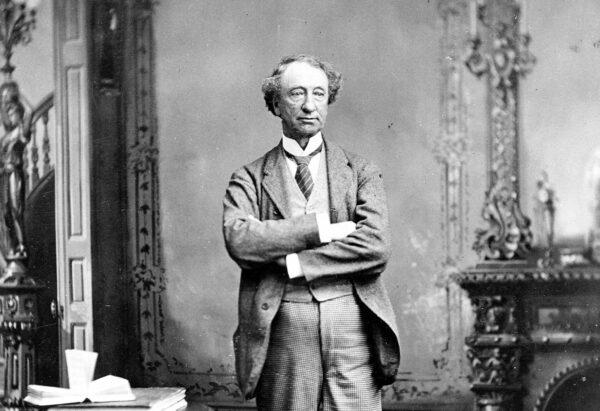Commentary
War and memories of war have always been important to Canadians—even the Fathers of Confederation.
He once showed me a photograph of his younger self, whiskers dark instead of white under a well-worn forage cap, with some mates among the ruins of Bernières-sur-Mer at Juno Beach a few weeks after D-Day. It would have been about 1987, more than 40 years after the event, that he showed me the picture, but like yesterday to Dave Moon, who died in 2006. “It’s a war” he would say of the losing battle to keep order among the books.

Sir John A. Macdonald. CP Photo/National Archives of Canada

Hon. George Etienne Cartier. Public Domain
Nor was it untypical for Macdonald’s caucus members, and not least the Quebecers, to have a connection to the war. Theodore Robitaille, MP for Bonaventure after Confederation, was a longtime Tory backbencher except for a stint as Receiver General, until Macdonald made him the fourth Lieutenant Governor of Quebec in 1879, and afterwards a senator. Even here we find a link, as Robitaille’s great uncle served as chaplain of the Lower Canadian Militia during the War of 1812.

Sir Étienne-Paschal Taché. Public Domain
The old Canada of Taché is long gone, obliterated by time and the loss of memory as well as deliberate replacement and suppression of traditional symbols and history with the invented traditions of the 1960s—and most recently, by false narratives and greatly exaggerated claims of evils in Canadian history.
It used to be part of a non-partisan historical consensus that the War of 1812 was foundational to Canada’s identity. The historian Arthur R.M. Lower, the author of the influential book “Colony to Nation,” wrote that the war was semi-mythical but formative all the same: “The sense of Canadian nationality dates from the war of 1812. … The essence of the war … is that it built the first story of the Canadian national edifice.”
“Old soldiers never die, they just fade away,” said General Douglas MacArthur. But the memory of Canada’s war veterans and their ultimate sacrifice in all the wars of Canadian history remains strong. Given Canadians’ abiding interest in Remembrance Day and veterans (despite government neglect and mishandling), there is still much hope that younger Canadians and future generations will somehow gain a better sense of Canada’s history and traditions than they have been given at school.
Views expressed in this article are opinions of the author and do not necessarily reflect the views of The Epoch Times.
Source link








































Add comment